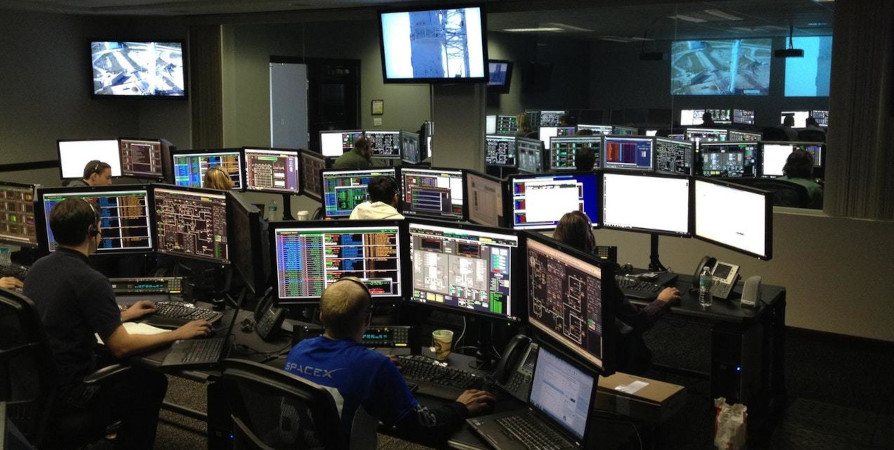Many people ask these questions- How can I be more productive? What can I do to increase the productivity of my team? Even better questions to ask are: How can I achieve and maintain consistent results? What can I do to bring some normalcy to my schedule? How can I help my team adjust to the constant change?
Productivity Defined
A basic definition for productivity is “how much” you can get done. Simple, right? But it can alter the perception of what you accomplish. You equate more with better.
The quantity of what you accomplish is not the same as quality. To put it another way, what value will you add by doing a lot of the wrong things?
You Can Do More But At What Cost
Think of the last thing that you worked on that you decided it would take a few late nights to finish. What was your stress level like? Did you sacrifice anything else?
I am not saying that you should give up on being productive, that would be silly. I am challenging you to test your current methods and see if the ROI is worth it. Wouldn’t it be better to have more control over the outcomes and the effort required?
Switch Your Focus To Becoming More Effective
Sometimes you will be highly productive or what I like to call “reasonably” productive. When you can get a great number of items done with little effort you are in the highly productive zone. Being “reasonably’ productive is actually a choice, dependent on how effective you are. This is how I choose to operate.
Deciding on and committing to the results you want will take you beyond just “how much” you can get done, but to gaining the skill of crafting more of your outcomes. When you measure your effectiveness as opposed to the quantity of things you are doing you will spend more time working on the right things.
Working on the right things makes it simple to keep up the pace you set. You will improve both your personal productivity and productivity in the workplace without the added stress.
Tip #1 - Manage your agenda

Your motivation of why you are doing something or your agenda affects your results. If you don’t have genuine motivations, believe me this will cause more obstacles than you can handle.
If you are a team member or flying solo
WIIFM is a famous radio station, but not everybody cares what is on the playlist. People understand when a situation no longer is equally beneficial to both parties, but favors one side. Once this happens, prepare for conflict.
If you are in charge of a team
To increase employee productivity while encouraging them to perform at their best you have to listen more. When you place your agenda in front of the needs of your team, you will slowly lose their confidence.
As the leader of the team it is very easy to have laser focus on your immediate needs (I am guilty of this) and forget about the needs of others. What must happen is another balancing act. Your job is to help your team to be successful in their role.
How I realized this in only an hour and a half
I had a team of roughly 500 in multiple locations. My schedule was hectic and time limited for any location. By the time I would arrive I had already had a list of what I wanted and needed to cover. Walking in the door, I would immediately start working on my priorities. I would hear my direct reports talking to me but I was not listening.
One day I was on my way out of town for a meeting, but had committed to meeting with a member of my team. I walked into a location armed only with a notebook, pen, and my phone (which was on vibrate). There was a round of “good mornings”, but I was out of my routine. Sally (not her real name) and I spoke about some of her wins, challenges, concerns and found some solutions. Then we spoke about my agenda and she was onboard with everything and even provided solutions. It was an amazing experience.
Tip #2 - Accept the reality of your environment

Students, doctors, bankers, and entrepreneurs work with different levels of urgency. Accepting the sense of urgency for your role is critical. There are two questions to ask.
How fast do things move around you?
Be aware of how fast new items and projects show up for you to handle. Having a handle on how your inputs add more work and the rate will make any necessary adjustments easier.
What are the typical demands/expectations and how are they communicated?
If realistic plans and priorities are the norm, you are fortunate. But if everything is urgent, there are two common reasons:
Poor planning - People communicating deadlines late, will affect your work. When panic is normal, it will affect your work. Accepting this reality will help keep your sanity.
Hero complex - I hate to say it but sometimes new projects and tasks end up on your desk just to make someone else look good. I am not saying that you have to agree with chaos. You only need to understand the landscape so you can navigate successfully. My response to these interesting environments is “Okay, next!”. I am not distracted by them because my focus is correct.
We can agree that streets and highways have differences, but their purpose is the same — provide a way to reach a destination. Your preference of highway or street doesn’t change your destination. The same is true for accepting the landscape of your environment, so you just have to remember where you are going and what you need to accomplish.
Tip #3 - Keep Relevant Information Accessible

The time that you save by not having to look for meeting notes or support information for a project is invaluable.
Trust your system and maintenance should not complicate your life. This does not mean that all the information needs to be in the same tool. That is a major misconception.
For example, you receive an email that has updated information for an upcoming meeting. You might copy the entire email to your calendar, but then risk burying what you need. An easier approach is only to add the information you need to the event.
Having the right information available when needed is an awesome super-power. Your goal should be to keep what works [for your system] and drop what doesn’t fit.
Tip #4 - Ask Questions, Request Feedback, and Provide Answers

When I ask questions or solicit feedback the following things occur:
- My brain envisions the desired outcomes quicker and solutions for expected issues.
- My level of confidence and trust rises in the relationship when an answer is provided (regardless of what it might be :-) ).
- I feel more confident in my ability to accomplish what I am tasked with.
When I provide answers, the above still occurs but I also gain insight into how the person processes information. This may influence how I present information or ask for information.
Up your communication game. You will be happy you did.
Tip #5 - Make To Time To Preview, Prepare And Review

Imagine a Broadway play where the actors only saw the script five minutes before the show started on opening day. That would be a train wreck, right? In whatever you do, big or small, start building preview, prepare and review into your routine. By combining this with tip #3 you separate yourself from the pack.
Preview what's coming up over the next 21 days. Having a clear view of what’s on your radar makes things less likely to slip through the cracks and you may find opportunities to make them more successful.
Prepare for what’s happening in the next 7 days and 24 hours. That meeting you need to prepare for, making dinner reservations, etc. What can you do right now to make it better?
Review what’s happened in the last week and 24 hours. What went well? What would you change? What do you need to keep doing? What broke?
Take The Next Steps
Productivity is not the problem since it’s binary — either low or high levels. To maintain productivity without burnout, you need a different skill set. You may even find that you are cramming less into your day and getting more of the “right” things done.
I have used these tips personally and with others over the years and I often smile when the “wow” moment happens. If you think any of these tips could help you leave a comment below, I would love the feedback.
